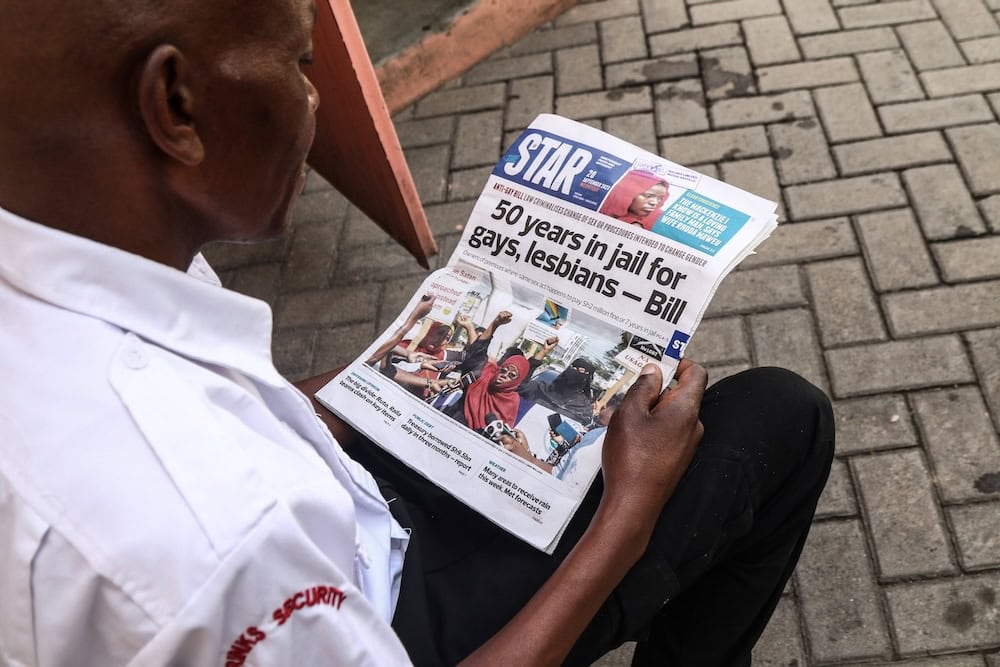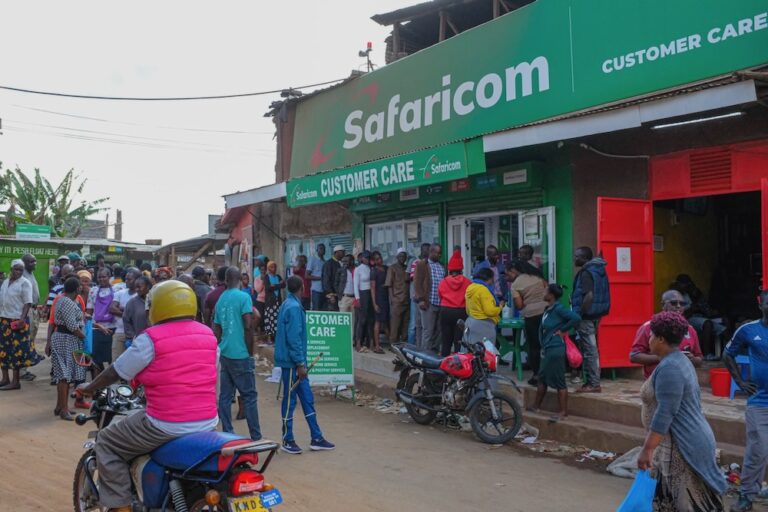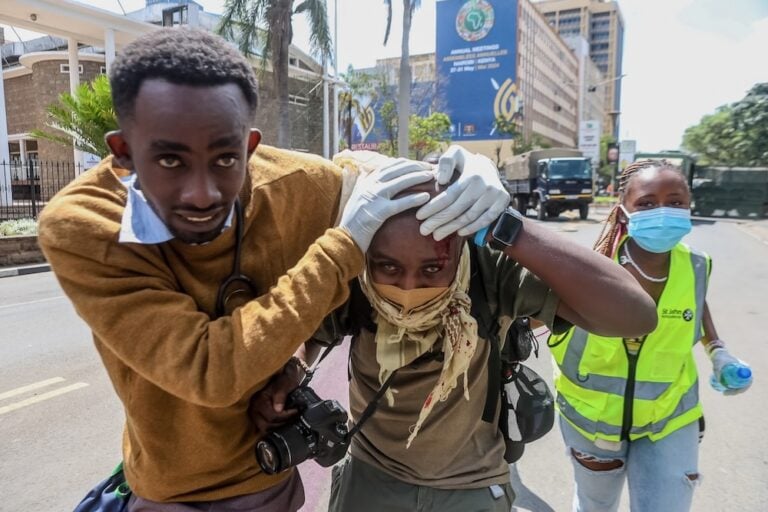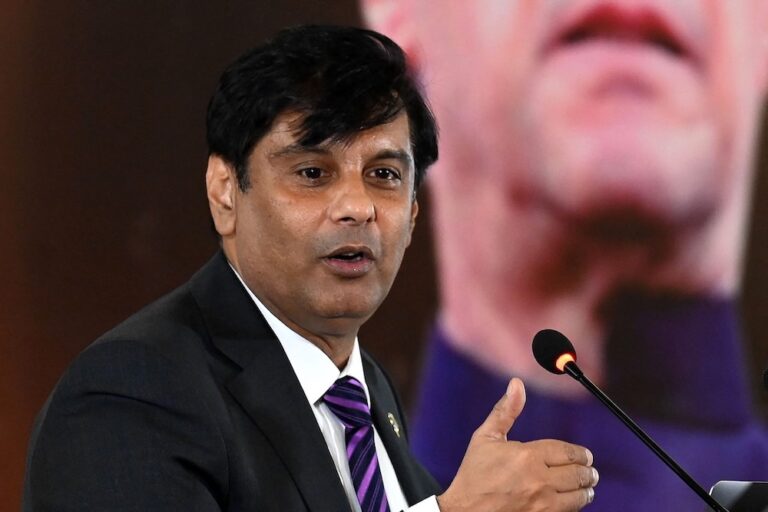Spanish based organisation, CitizenGO, lends its support to politically motivated anti-LGBTQ+ rhetoric in Kenya.
This statement was originally published on globalvoices.org on 20 August 2024. It was awritten by Linda Ngari with support from the Initiative for Equality and Non Discrimination (INEND) to monitor and debunk misinformation targeting Kenya’s LGBTQ+ community online and offline.
Ultra-conservative advocacy group CitizenGo circulated a petition with deceptive data claims
A Supreme Court of Kenya ruling meant to reaffirm the rights of queer Kenyans as guaranteed in the Constitution was ironically used to unleash unbalanced, politically-motivated homophobia, especially by the political class and right-wing lobby groups.
The ruling that was made in February 2023 ended a decade-long court battle and allowed organizations advocating for LGBTQ+ rights to officially register under the NGO Coordination Board. However, it elicited unsettling homophobic rhetoric online and offline, with the major proponents of hate speech against queer Kenyans being political leaders.
A motion tabled by Nyali Member of Parliament (MP) Mohamed Ali, claiming to protect “family values and the human race from going extinct,” resulted in Kenya’s parliament passing a bill banning the discussion, publication, and dissemination of LGBTQ+ content in the country. The motion was unanimously passed in April 2023.
Even after the February 2023 ruling, public outrage led to the case, initially presented in court in 2012, being reviewed by the Supreme Court in September 2023. Once again, the court upheld its stance in support of the freedom of association for LGBTQ+ organizations.
Opposition to the ruling manifested both online and offline. On September 15, 2023, Mohamed Ali shared on X (formerly Twitter) that he had joined an anti-LGBTQ+ march in Momabasa. Deputy President Rigathi Gachagua also dismissed the Supreme Court ruling. However, one of the most notable oppositions came from Homa Bay MP Peter Kaluma’s proposal to amend the Family Protection Bill of Kenya to include the criminalisation of LGBTQ+ relationships and ban comprehensive sexuality education.
In support of Kaluma’s proposition, a right-wing organization called CitizenGo circulated a petition entitled, “I support the Family Protection bill of 2023 by Honorable Peter Kaluma.” The petition was started in April 2023 and has so far received over 4,000 signatures. It contains a claim alleging that a “recent” poll by marketing research company IPSOS supposedly revealed that 90 percent of Kenyans are allegedly opposed to homosexuality.
To begin with, describing Peter Kaluma’s suggestions as a bill is misleading. The parliament of Kenya defines a bill as a draft law presented for debate. There is no mention of the Family Protection Bill on the Kenyan parliament’s bill tracker. Neither does the parliamentary Hansard contain any record of the Family Protection Bill having ever been discussed in parliament.
To verify the claim that IPSOS, whose brand has previously been used to fabricate fake polls, conducted the data cited by CitizenGo, this author reached out to IPSOS. In response, IPSOS Kenya Managing Director Chris Githaiga issued a statement clarifying that IPSOS Kenya “has not conducted any polls on homosexuality or any related studies.”
Moreover, a Google search of the sentence: “90 percent of Kenyans are opposed to homosexuality,” brings up an article published by The Guardian in 2015. The article shows that in 2013, which was 11 years ago, 90 percent of Kenyans were found to be against homosexuality. The article quotes a survey by American Pew Research Center, which is where the data as quoted by CitizenGo originates — not from IPSOS, as alleged.
As a rule of thumb, research is considered stale and obsolete when it is more than 10 years old. This proves that the claim made by CitizenGo, allegedly quoting a “recent poll,” is from research done 11 years ago and, hence, obsolete.
Who is CitizenGO?
CitizenGO is a Spain-based organization founded by Ignacio Arsuaga, presenting itself as a community of active citizens dedicated to defending “family values.” The organization runs campaigns that especially align with right-wing ideologies, such as anti-choice campaigns, as well as banning and stopping the implementation of comprehensive sex education.
Some of the success stories that CitizenGo boasts of under their victories webpage include their petition to protect Kenya’s churches from taxation, another petition to ban Tiktok in Kenya for sexually provocative content and yet another for a petition to stop the legalisation of abortion in Liberia. Based on three samples alone, the victories claimed by the group misinform either by omission or by misrepresenting the facts.
While they don’t declare what methodology they employ before terming a campaign successful or “victorious,” the move to protect Kenya’s churches from taxation was actually made possible by a High Court ruling. On the alleged ban of TikTok in Kenya, this claim has previously been fact-checked and found to be false. The parliament discussed a petition to ban TikTok in August 2023, but this motion was not passed. Instead, Kenya’s government in April 2024 directed TikTok to file compliance reports every three months in a bid to regulate the content platform in lieu of completely banning it. As for the petition to stop the legalisation of abortion in Liberia, the CitizenGO petition quotes unfounded claims initially made by an online news outlet that the Swedish government allegedly paid each Liberian senator USD 20,000 to legalise abortion. Apart from three other blogs that published the allegation, the claim was not reported on any credible Liberian news outlet.
According to a report by the Mozilla Foundation, CitizenGo was behind sponsored smear campaigns against Kenya’s 2020 Reproductive Healthcare Bill and the 2021 Surrogacy Bill. The campaigns were evident online through hashtags such as #stopsurrogacybillKE #notoabortionKE and #Notoabortionincovid19, the campaigns further targeted Kenyan lawmakers who supported the bills via hashtags such as #stopkihikaabortionbill #passarisabortionkills and #KihikaAbortionBillSuspended. The Mozilla report further states that influencers behind the campaigns were reportedly paid between USD 10 to USD 15 per campaign by individuals on behalf of CitizenGO.
Ignacio Arsuaga had initially founded the controversial HazteOir organization, which precedes its global-facing arm, CitizenGo. The organization is connected to Spain’s right-wing political party called Vox Party. Based on a report by the Washington Post, CitizenGo funds and is funded by divisive ideologies and politically aligned proponents globally. The organization was involved in fundraising for Donald Trump’s presidential campaign in 2016 and is not only determined on anti-choice campaigns but is also aligned with Islamophobic movements, the Washington Post reveals.
Contrary to data protection laws, CitizenGo automatically adds any emails responding to their petitions on their mailing list without consent. Subsequent emails ask for donations and signatures for newer petitions.
Is it possible that Western foreign influence operations are dragging African countries like Kenya into culture wars whose endgame only they understand?
Written by Linda Ngari



